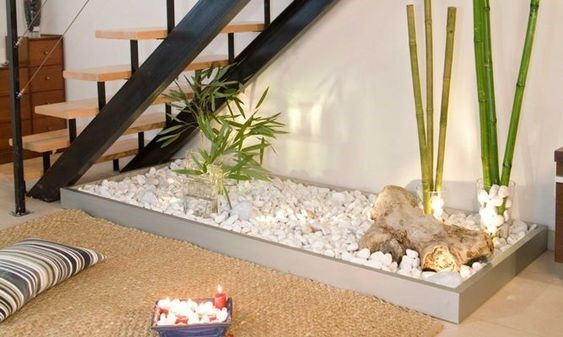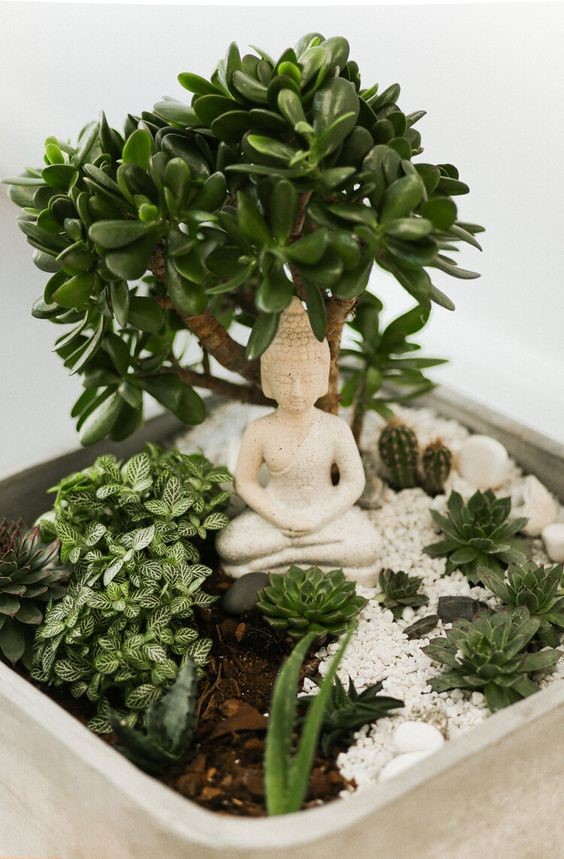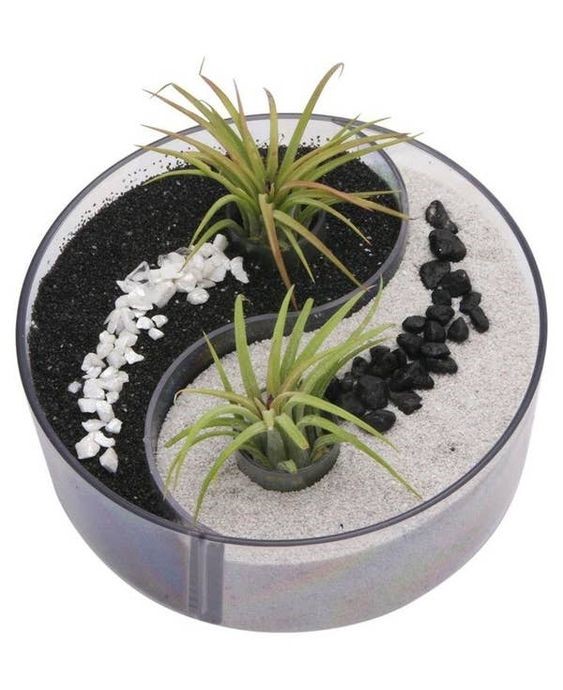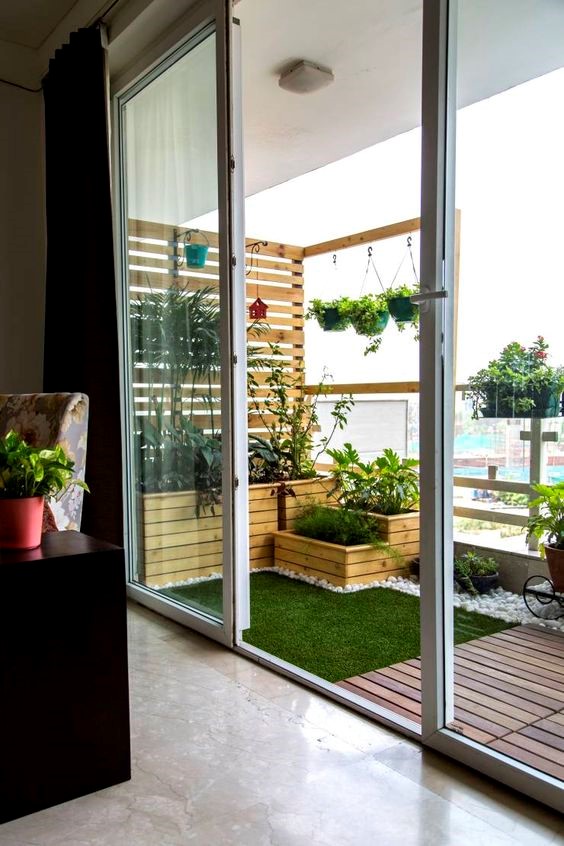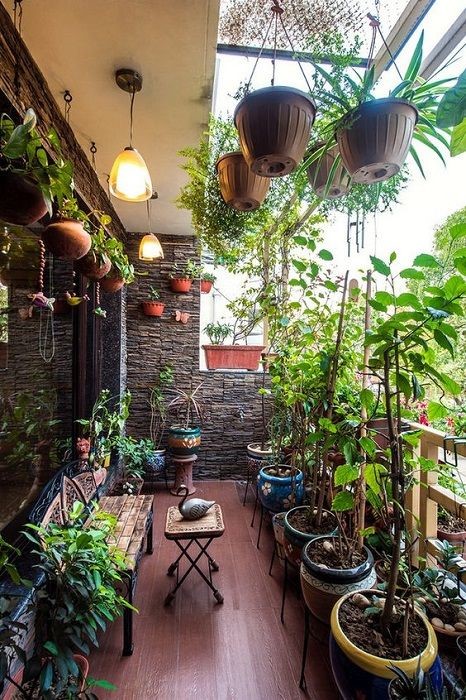A Zen Garden, or a Japanese Rock Garden is a stylised garden created through a careful arrangement of sand, rocks, bushes, moss and water. Zen Gardens were originally created with the intention to imitate and recreate the feel of nature, in a miniature version that would aid in meditation and maintaining peace.
The newest growing trend is an Indoor Zen Garden within homes or in office spaces. Indoor Zen Gardens may be set up in a small corner, or even in a flat bowl.
Unlike the open space Zen Gardens, Indoor Zen Gardens are easier to set up and require lesser elements.
The two basic elements are required for an Indoor Zen Garden are rocks and sand. Small plants like Bonsai or succulents may also be added for aesthetic.
The sand used in Indoor Zen Gardens is fine sand. Sometimes, white sand is also used as it creates an appealing colour scheme.
The rocks used may be river rocks, or decorative glass rocks. This depends on the discretion of the individual. The rocks are generally either place one on of the other, with the largest rock at the bottom and the smallest rock at the top. Alternatively, the rocks may be kept in a line formation. The size and placement of the rocks may depict different things in the Japanese culture.
Keep in mind, that the formation and combination of sand, rocks and plants should not overcrowd the Zen Garden, and cause it to lose its essence.
Since Indoor Zen Gardens are much smaller and cosier, they are usually ideal for relieving stress and calming the mind.
Japanese Balcony Gardens are ideal gardens in a modestly sized balcony. They are also good for small space gardening. It permits full utilisation of the balcony space. Japanese Balcony Gardens are known for being a serene space with a minimalistic layout and presentation.
The inspiration of a Japanese Balcony Garden is Nature. The essence of the Garden is to create a space within the house where different elements of nature can be seen in harmony.
Nature is known to have a calming effect on the fast-paced human mind and the Japanese Balcony Garden attempts to calm the mind and relieve stress.
The elements seen in the Japanese Garden include stones, water or sand and plants. In the Japanese Garden, unlike the Zen Garden, has no specific symmetry or formation that the different elements have to be place in.
The elements in the garden depict different things.
For instance, Water symbolises life, and brings life to the garden. Water may be replaced by sand or gravel. Stones symbolise eternity and strength. Green plants depicts longevity and adds a longer life to the arrangement.
Rocks, in any type of Japanese Garden are a fundamental element that represents mountains, or are seen as a symbol of the figure of Buddha.
In both Indoor Zen Gardens and Japanese Balcony Gardens, a small statue of Buddha may be added to add an element of tranquillity.

